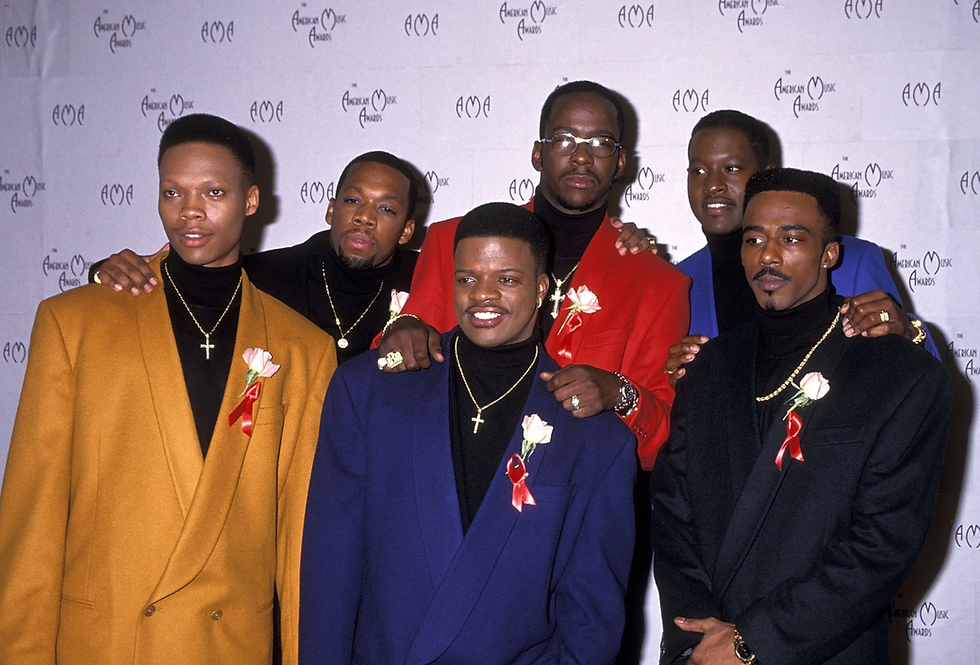Teddy Pendergrass
- osolasamuel
- Sep 15, 2022
- 3 min read

Teddy Pendergrass, in full Theodore DeReese Pendergrass, (born March 26, 1950, Kings tree, South Carolina, U.S.—died January 13, 2010, Bryn Mawr, Pennsylvania), American rhythm-and-blues singer who embodied the smooth, Philly soul sound of the 1970s as lead vocalist for Harold Melvin and the Blue Notes before embarking on a successful solo career.
Beginning as a gospel singer in Philadelphia churches, Pendergrass taught himself to play drums and joined the Blue Notes in 1969. In 1971 the group signed with producers Kenny Gamble and Leon Huff at Philadelphia International Records, and a string of hits followed. The group’s 1972 eponymous debut album for Philadelphia International produced the singles “I Miss You” and Grammy-nominated “If You Don’t Know Me by Now,” and Pendergrass joined the ranks of R&B’s elite male vocalists. While he lacked the vocal range of Al Green or the musical virtuosity of Stevie Wonder, Pendergrass brought an unbridled masculinity to his stage presence. Embarking on a solo career in 1976, Pendergrass capitalized on his baritone lothario image, most notably with his trademark “ladies only” concerts. He scored hits with the singles “I Don’t Love You Anymore” and “Love T.K.O.”

Philadelphia International’s songwriters provided Mr. Pendergrass with material that was forthright but never crude, promising nothing more explicit than a back rub.
“Teddy had that big, booming baritone voice, but he was a tender man,” Mr. Huff said in a telephone interview Thursday. “He was very lovable. You could hear it in his music.”
By the late ’70s, Mr. Pendergrass’s concerts some of them presented for women only drew screaming, ecstatic crowds. Women would fling teddy bears and lingerie onstage. Mr. Gamble called Mr. Pendergrass “the black Elvis.”
Mr. Pendergrass was a hitmaker for a decade. Then, on March 18, 1982, on a winding road in the Germantown section of Philadelphia, Mr. Pendergrass’s Rolls-Royce smashed into a highway divider and a tree, a result of either brake failure or a faulty electric system that had disabled the power steering. Spinal cord injuries left him paralyzed from the chest down at 31.

But after extensive physical therapy he resumed his recording career and had Top 10 rhythm and blues hits and gold albums into the ’90s. His voice was less forceful but still recognizable, as he substituted nuance for lung power. Though he could no longer tour, a worldwide television audience saw him sing at the Live Aid concert in Philadelphia in 1985, and he returned occasionally to the stage in the 1990s and 2000s.

Growing up in North Philadelphia, Mr. Pendergrass was steeped in both gospel and soul music. He was 2 years old when he first stood on a chair to sing at a storefront Holiness church, and with his mother’s encouragement he often attended church seven days a week. But he was also drawn to the Uptown Theater, which presented top performers on the R&B circuit. When he was a teenager his mother gave him a set of drums, and he taught himself to play them.

Having a concerts for women, audience members were given chocolate teddy bear-shaped lollipops to lick. In later years, Mr. Pendergrass would say he was slightly embarrassed by those shows.
“As outgoing as I am, I’m still a country boy,” he told The Philadelphia Inquirer in 2002. “It was complimentary, but it was also hard to handle.”
After the car crash and physical therapy, Mr. Pendergrass resumed his recording career with “Love Language,” a gold album that included an early appearance by Whitney Houston on the album’s R&B hit single, “Hold Me.”
With his 1985 album “Workin’ It Back,” Mr. Pendergrass began writing some of his own songs. His 1988 album “Joy” went gold, and its title track became a No. 1 R&B hit. “Voodoo,” a single from his 1993 album “A Little More Magic,” was nominated for a Grammy Award. (Though he was nominated more than once for the award, he never received one.)





Comments